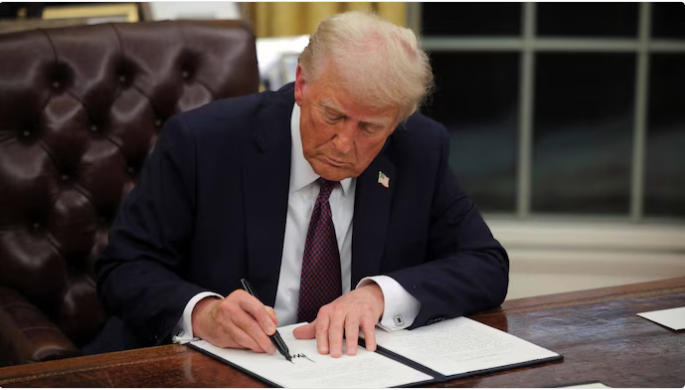
The U.S. Department of Education has directed schools and colleges to reinstate sexual misconduct policies from former President Donald Trump’s administration, rolling back changes made under President Joe Biden that expanded protections for LGBTQ+ students. The move follows a court ruling that blocked Biden’s Title IX revisions, which sought to broaden the scope of sexual harassment investigations and extend protections based on gender identity and sexual orientation.
Education Department Reverts to 2020 Policies
In a letter issued on January 31, the Department of Education instructed educational institutions to abandon Biden-era Title IX policies and instead adhere to the 2020 regulations set by former Education Secretary Betsy DeVos. These Trump-era rules emphasize due process protections for accused students and limit the liability of schools in sexual misconduct cases.
Biden’s revisions had redefined Title IX—a federal law prohibiting sex-based discrimination—to include protections against discrimination based on sexual orientation and gender identity. The blocked changes also made it easier for students to report sexual harassment and removed the requirement for live hearings during investigations.
Key Differences in Sexual Misconduct Policies
The 2020 Trump-era rules reinstated by the Education Department introduce several key changes:
- Schools must hold live hearings where both the accused and accuser can question each other through an adviser or lawyer.
- A stricter definition of sexual harassment applies, meaning fewer cases qualify for investigation.
- Schools are only responsible for cases if they show “deliberate indifference” to a complaint.
- Accused students are granted additional rights, including access to evidence and the ability to appeal decisions.
Court Blocks Biden’s Title IX Expansions
The rollback follows a January 9 court ruling in Kentucky, which blocked Biden’s changes to Title IX, deeming them unconstitutional. The ruling came amid lawsuits from multiple Republican-led states, arguing that the administration’s policies violated free speech rights and unlawfully forced schools to recognize students’ preferred pronouns and gender identities.
Impact on Students and Schools
The reinstatement of Trump’s 2020 rules has significant implications for students across the country. Critics argue that the stricter definition of sexual harassment and mandatory live hearings may discourage survivors from reporting misconduct. Cross-examinations during hearings could further traumatize victims, advocacy groups warn.
Conversely, supporters of the policy shift contend that the rules restore due process rights for accused students, ensuring fairness in sexual misconduct investigations. Under the Trump-era rules, accused students can directly challenge allegations and review all evidence before a decision is made.
LGBTQ+ students, meanwhile, face a loss of protections that Biden’s policies had provided. Without Biden’s expanded Title IX definitions, schools are no longer explicitly required to address discrimination based on gender identity or sexual orientation. This change also aligns with broader debates over gender recognition laws, particularly regarding school policies on bathroom access, sports participation, and anti-discrimination protections for transgender students.
What’s Next?
Effective immediately, all schools and colleges must comply with the 2020 regulations. Ongoing investigations that began under Biden’s guidelines must transition to the Trump-era framework.
The decision has sparked opposition from student advocacy groups and women’s rights organizations, who argue that the rollback undermines protections for sexual assault survivors. Meanwhile, legal advocacy groups defending due process rights have welcomed the return to stricter procedural safeguards for accused students.
While the Biden administration may pursue further legal challenges to reinstate its Title IX expansions, schools are required to adhere to the 2020 rules for now. The ongoing legal battle over Title IX underscores the broader national debate over gender identity, student rights, and campus sexual misconduct policies.





